Web Scraping Price Airbnb Data with Python – A Complete Guide?
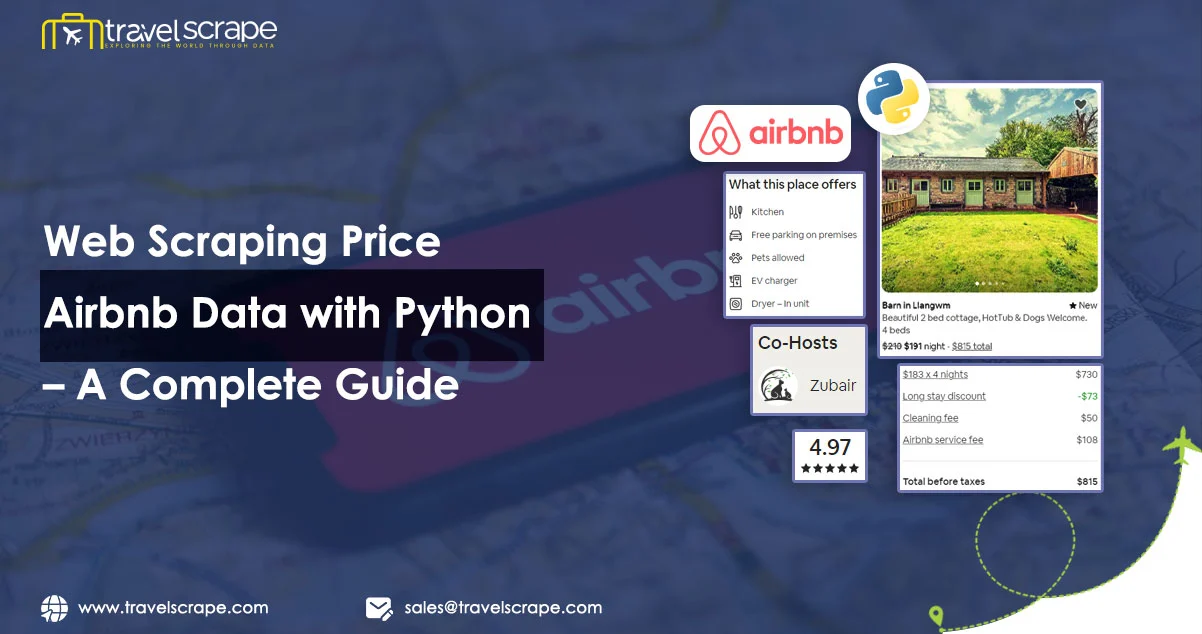
Introduction
Web scraping is a powerful tool that allows us to collect large amounts of data from websites efficiently. This guide will walk you through the process of scraping Airbnb price data using Python, providing you with the knowledge and tools to extract valuable information from Airbnb listings. We will cover everything from setting up your environment, handling potential challenges, and best practices for ensuring your scraping activities are efficient and respectful of website terms of service.
Introduction to Web Scraping
Web scraping involves extracting data from websites for various purposes, such as market research, data analysis, and competitive analysis. It allows businesses and individuals to gather valuable information from the web efficiently. Regarding scraping price data from Airbnb listings, Python offers powerful libraries that make the process straightforward and effective.
Python's automation capabilities are particularly valuable in web scraping, allowing for the extraction of price data and other relevant information from Airbnb listings. This functionality is especially useful for market trend analysis, competitor monitoring, and price comparison. Popular libraries like BeautifulSoup and Selenium are commonly used for web scraping, with BeautifulSoup excelling in parsing static HTML content and Selenium proving effective for interacting with dynamically loaded web pages.
For instance, if you want to collect Airbnb data from hotel-like listings or compare Airbnb prices with traditional hotels, web scraping can provide comprehensive datasets for analysis. By scraping hotel price data and Airbnb listings, you can gain insights into pricing strategies, occupancy rates, and other market dynamics. Web scraping thus becomes a crucial tool for making informed decisions based on real-time data.
Why Scrape Airbnb Listing Data?
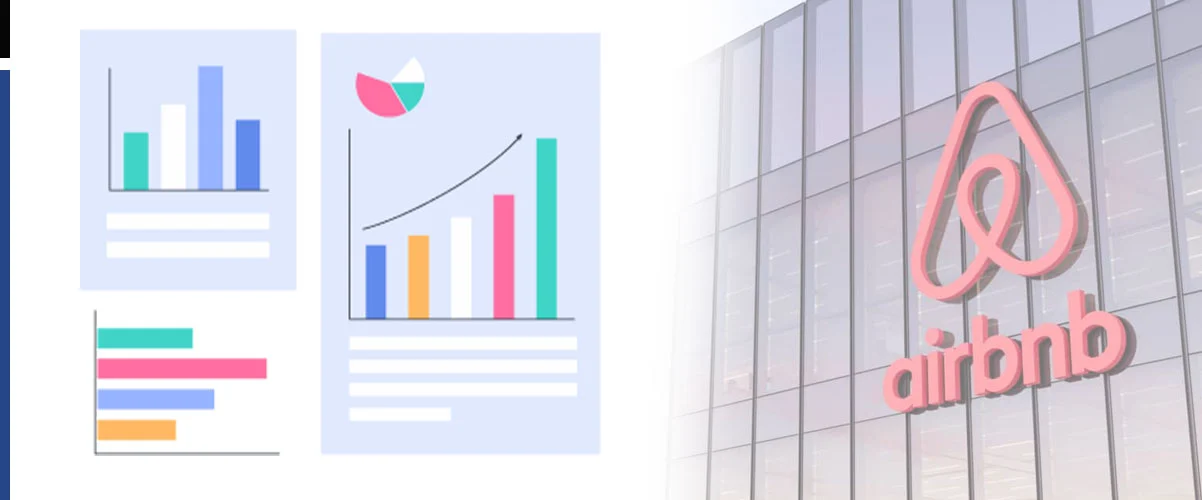
Scraping Airbnb listing data offers numerous advantages for individuals and businesses looking to gain insights into the short-term rental market. This data can be invaluable for market research, price analysis, and competitive intelligence, providing a clear picture of current trends and opportunities.
Market Research
One primary reason to scrape hotel price data is to conduct comprehensive market research. Collecting data on listings allows you to analyze various metrics such as pricing, availability, location, and amenities. This information helps understand the market dynamics, identify high-demand areas, and recognize seasonal trends. For investors and property managers, such insights are crucial for making informed decisions about property acquisitions and pricing strategies.
Price Analysis
Web scraping price Airbnb data with Python allows you to monitor and compare rental prices across different locations and property types. By regularly collecting this data, you can track changes in pricing strategies, identify underpriced or overpriced listings, and adjust your pricing model accordingly. This is particularly useful for hosts seeking to maximize revenue and maintain competitive pricing.
Competitive Intelligence
Collecting Airbnb data from hotel-like listings provides valuable competitive intelligence. By analyzing the features and prices of comparable hotel rooms and Airbnb properties, businesses can identify their strengths and weaknesses relative to their competitors. This information is vital for developing strategies to enhance the attractiveness of their offerings and improve occupancy rates.
Strategic Decision Making
For businesses in the hospitality industry, web scraping for hotel data and Airbnb listings helps in strategic planning. By combining data from both sources, you can perform a thorough comparative analysis. This can reveal consumer preference trends, highlight market gaps, and inform decisions on new property developments or service enhancements.
Setting Up Your Environment
To start scraping data from Airbnb, you need to set up your Python environment. You'll need to install several libraries, including requests, BeautifulSoup, and Selenium.
Installing Required Libraries
First, ensure you have Python installed on your machine. Then, install the necessary libraries using pip:
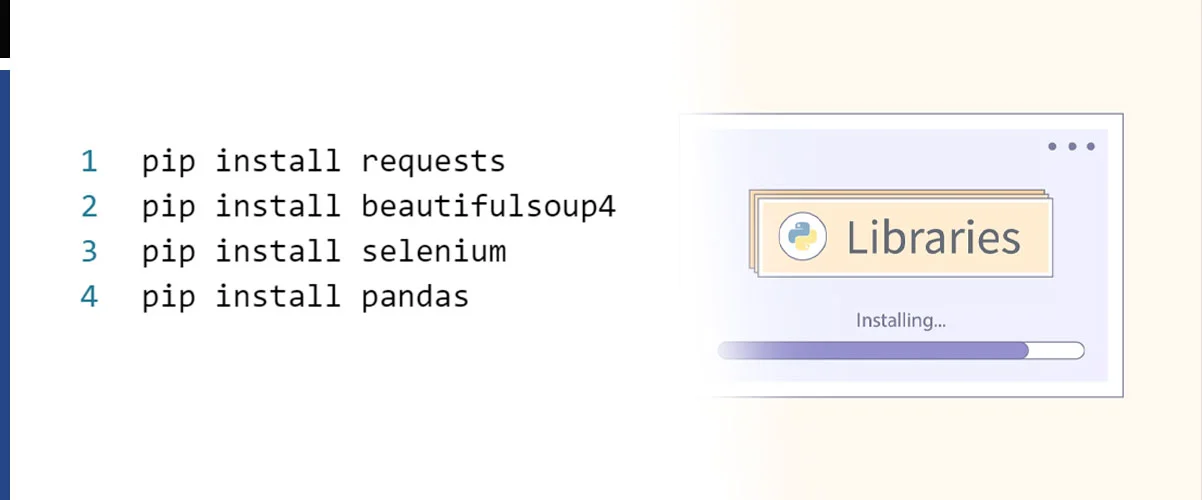
Understanding Airbnb's Structure
Before you start scraping, it’s crucial to understand the structure of Airbnb’s web pages. Airbnb listings contain various elements such as the listing title, price, location, and more. Inspecting the HTML structure of a typical Airbnb listing page will help you identify the elements you need to scrape hotel price data.
Inspecting Elements
You can use your browser's developer tools (right-click on the page and select "Inspect") to explore the HTML structure. Look for elements containing the data you want, such as the price.
Extracting Data with BeautifulSoup
BeautifulSoup, a Python library, excels in parsing HTML and XML documents. It constructs parse trees from webpage source codes, enabling efficient extraction of desired data.
Basic Example
Here’s a simple example of using BeautifulSoup to extract data from a static webpage:
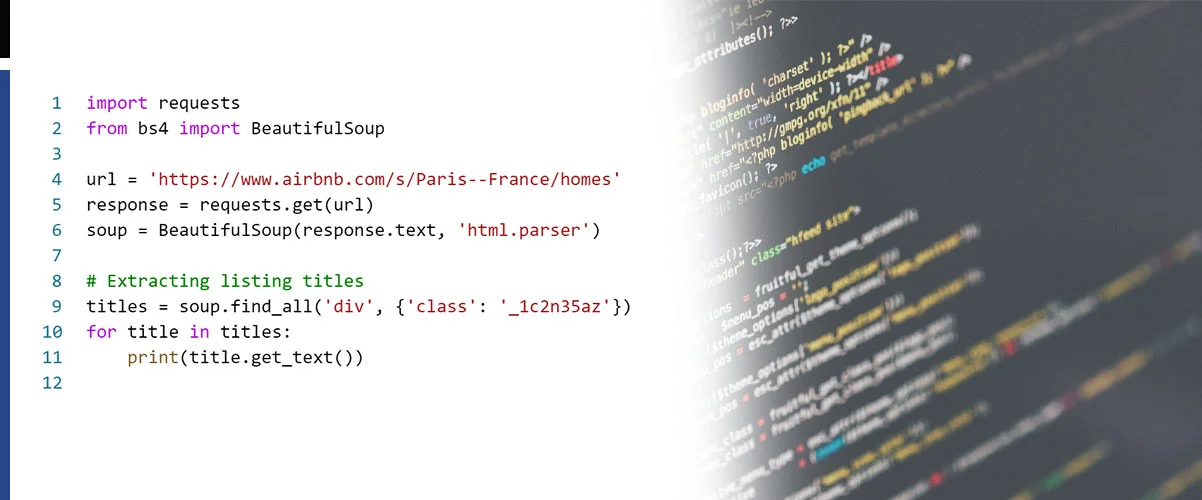
This script fetches the webpage and parses it to find listing titles. You'll need to adjust the find_all method parameters to match the actual class names used in Airbnb’s HTML.
Using Selenium for Dynamic Content
Airbnb uses JavaScript to load content dynamically, which means some data might not be available in the initial HTML. Selenium is a tool that can automate web browsers and is ideal for scraping dynamic content.
Setting Up Selenium
First, download a WebDriver compatible with your browser (e.g., ChromeDriver for Google Chrome) and ensure it’s in your PATH.
Scraping with Selenium
Here’s an example of how to use Selenium to scrape dynamically loaded content:
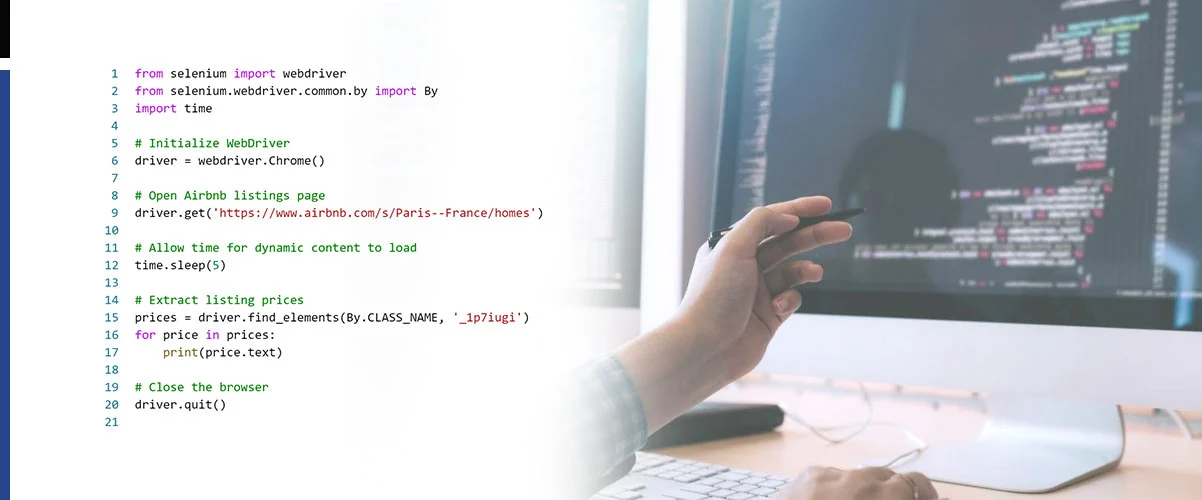
This script opens a browser, navigates to the Airbnb listings page, waits for the content to load, and extracts the prices.
Handling Captchas and Anti-Scraping Measures
Websites often implement measures to prevent automated scraping. Airbnb may use techniques such as CAPTCHAs or rate limiting.
Strategies to Handle These Measures
Proxies and User Agents: Use rotating proxies and user agents to avoid detection.
Delay Requests: Implement random delays between requests to mimic human behavior.
CAPTCHA Solving Services: Consider using third-party CAPTCHA solving services if necessary.
Data Storage and Analysis
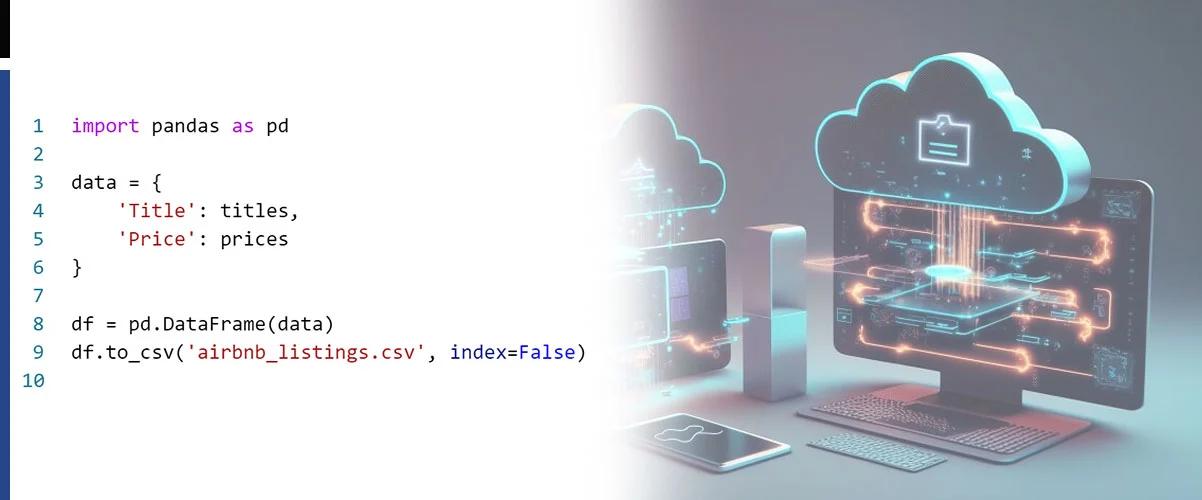
Once you have scraped the data, you’ll want to store it in a structured format for analysis. Common formats include CSV, JSON, and databases like SQLite or MongoDB.
Saving Data to a CSV File
Here’s how to scrape hotel price data and save to a CSV file using pandas:
Analyzing the Data
With the data stored, you can perform various analyses, such as average price calculations, trend analysis, or price comparisons between different locations.
Ethical Considerations and Best Practices
Web scraping should be done responsibly and ethically. Here are some best practices:
Respect Terms of Service: Always review and adhere to the website’s terms of service.
Avoid Overloading Servers: Make requests at reasonable intervals to avoid overwhelming the website’s servers.
Use Data Responsibly: Ensure that the data you collect is used in a manner that respects user privacy and the website's guidelines.
Conclusion
Web scraping price data from Airbnb listings with Python can provide valuable insights for market analysis, competitive intelligence, and more. By using tools like BeautifulSoup and Selenium, you can efficiently collect and analyze data while adhering to ethical scraping practices. Whether you need to scrape mobile travel app data with Python or collect Airbnb data from hotel-like listings, these tools are essential for gaining a competitive edge. Remember to respect the website's terms of service and use the data responsibly. With this guide, you now have the foundation to start web scraping travel aggregators data with Python effectively. Happy scraping!
Ready to transform your travel data analysis? Visit Travel Scrape and start your journey today!